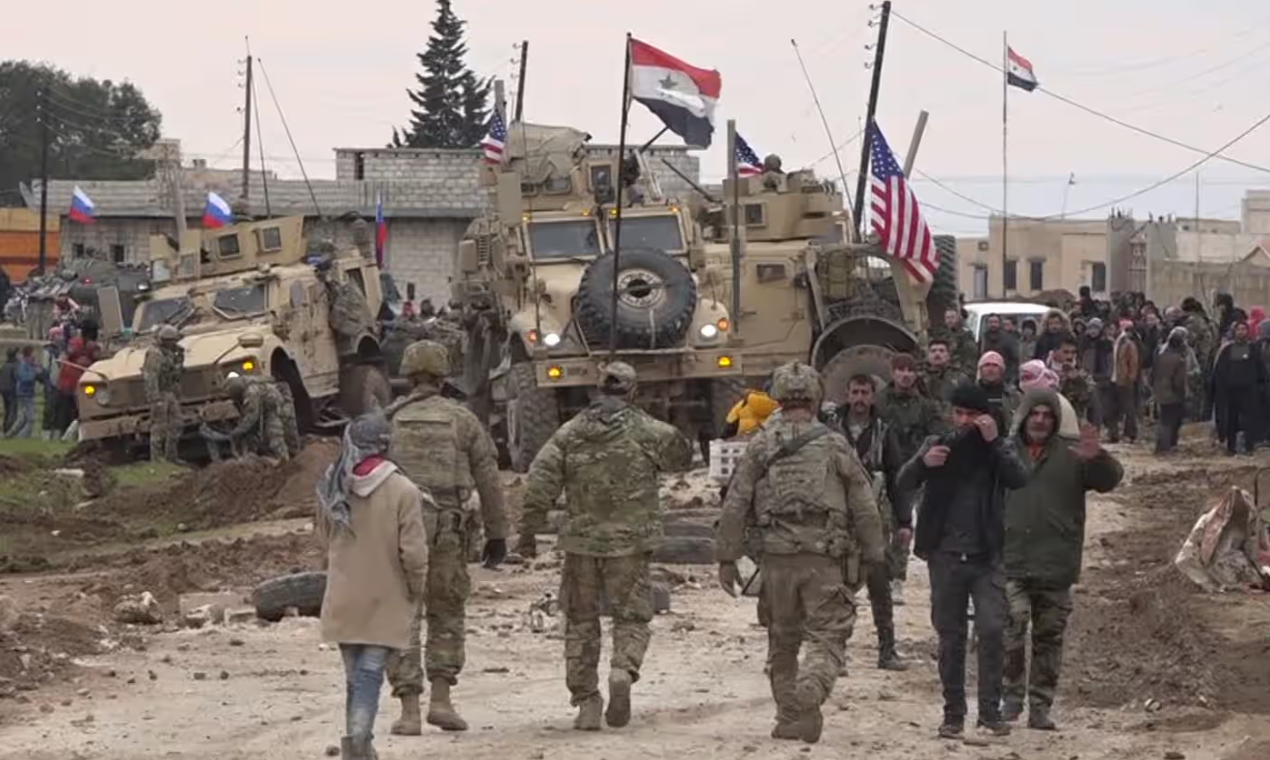Some media outlets have reported that negotiations are underway regarding the withdrawal of American military personnel from Syria.
According to Al Mayadeen, Politico, an American media source, has stated, based on information from three high-ranking officials within the United States government, that discussions are ongoing concerning the withdrawal of American military forces from Syria.
"Lloyd Austin," the Secretary of Defense of the United States, has announced that formal talks between Washington and Baghdad regarding the future of America's 2,500-strong military presence in Iraq will begin in the coming days. Simultaneously, experts specializing in the Middle East have indicated ongoing internal deliberations in Washington concerning the potential withdrawal of nearly 900 troops from Syria, despite the Biden administration's opposition to such discussions.
Moreover, Politico's report highlights discussions occurring across different departments of the White House concerning the strategic placement of American military forces in the region. Conversations regarding Iraq and Syria are intertwined due to the movement of armed forces along their shared border.
Regarding Iraq, Austin has affirmed the establishment of the US-Iraq High-Level Military Commission. The Pentagon has outlined that Washington officials will deliberate the "transition" of coalition forces under US leadership based on three key factors: terrorist threats, operational and environmental necessities, and the capabilities of Iraq's security forces.
A former US official familiar with these negotiations remarked that the American objective has consistently been to refrain from specific discussions regarding withdrawal and military handover in Iraq. However, recent regional tensions, including the conflict in Gaza and more than 150 attacks by armed factions in Iraq and Syria, have presented challenges for American policymakers.
Regarding Syria, three senior officials of the Biden administration have confirmed that negotiations regarding the withdrawal of American military personnel are underway. However, they have framed this withdrawal as part of routine planning regarding where American forces are most strategically useful in the region and how long military missions should continue.
Meanwhile, the Iraqi Foreign Ministry had announced an agreement between Iraq and the United States regarding the necessity of assessing the threat level posed by ISIS by special committees of the High-Level Military Commission (HMC). The Iraqi Foreign Ministry also stated that this action aims to establish a clear and specific timeline for reducing the presence of international coalition advisors in Iraq, gradually reducing the number of advisors present, and ending the military mission against ISIS.
Furthermore, the statement continues to mention that the movement towards comprehensive bilateral relations in political, economic, cultural, security, and military domains with coalition member countries aligns with the Iraqi government's perspective. Both parties support the actions of this committee, facilitating its missions and preventing any obstacles or delays hindering these missions.
Additionally, the Iraqi Foreign Ministry stressed its commitment to ensuring the safety of international coalition advisors across the nation throughout the discussions, underscoring its dedication to upholding stability and averting the escalation of tensions.
Moreover, the statement elaborates that the Iraqi government embraces this accord as integral to its national plans and fulfillment of commitments to its people.
Meanwhile, U.S. Defense Secretary Lloyd Austin announced that the United States and Iraq will convene special committee meetings of the High-Level Military Commission. This commission empowers both nations to progress toward secure and stable security relations.



























